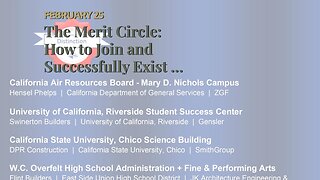Premium Only Content

How to Spend Your Time Well – Taking Stock of the Costs
How to Spend Your Time Well – Taking Stock of the Costs
How you spend your time each day has a big impact on your overall quality of life. That’s why it’s important to manage your time wisely, and understand the costs and benefits of how you use your time.
In this blog post, we’ll explore the importance of time management, and provide some useful strategies for making the most of your time. We’ll also look at some common pitfalls that can lead to poor time management, and how to avoid them.
So whether you’re looking to boost your productivity, or just want to make better use of your free time, read...
https://finetimer.site/how-to-spend-your-time-well-taking-stock-of-the-costs/
How you spend your time each day has a big impact on your overall quality of life. That’s why it’s important to manage your time wisely, and understand the costs and benefits of how you use your time.
In this blog post, we’ll explore the importance of time management, and provide some useful strategies for making the most of your time. We’ll also look at some common pitfalls that can lead to poor time management, and how to avoid them.
So whether you’re looking to boost your productivity, or just want to make better use of your free time, read on for some helpful tips! Photo by Karolina Grabowska on Pexels The Importance of Time Management.
The Cost of Time.
The cost of time is the opportunity cost of doing one thing instead of another. The opportunity cost is the value of the best alternative that you give up when you make a choice. In other words, it’s what you could have had if you had made a different decision.
For example, let’s say you decide to spend an hour watching TV instead of working on your side hustle. The opportunity cost is the income you could have earned during that hour. Or, if you choose to spend an hour working on your side hustle instead of spending time with your family, the opportunity cost is the time spent with your family that you’re giving up.
You can think of opportunity cost as the “cost” of your time. And just like any other resource, time needs to be managed wisely in order to get the most out of it.
The Value of Time.
In addition to opportunity cost, there’s also the intrinsic value of time itself. Time is a precious commodity that we can never get back once it’s gone. That’s why it’s so important to use our time wisely and make sure we’re spending it on things that are truly valuable to us.
For example, let’s say you want to start a new hobby but you’re not sure if it’s worth your time investment. One way to think about this is to consider the intrinsic value of that hobby: will it make you happy? Will it help you grow and learn new things? If the answer is yes, then it might be worth pursuing despite the opportunity cost.
Ultimately, only YOU can decide what’s truly valuable with your time! But taking stock of both the costs and the benefits can help you make more informed decisions about how to spend your precious commodity called “time.”
Time Management Strategies.
Setting Priorities.
One of the most important aspects of time management is learning how to set priorities. This means understanding what tasks are the most important and need to be completed first, and which tasks can wait or can be delegated to someone else.
There are a few different ways that you can go about setting priorities. One way is to make a list of all of the tasks that you need to complete, and then rank them in order of importance. Another way is to use the ABC method, which stands for “Always Be Closing”. This means prioritizing tasks that will help you reach your goals, or “close” deals.
The last way to set priorities is by using the Eisenhower Matrix, which we will discuss in more detail later on. No matter which method you choose, setting priorities is an essential part of time management and will help you make sure that you are spending your time on the things that matter most to you.
Creating a Schedule.
Once you have figured out what your priorities are, it’s time to start creating a schedule. This will help you figure out when you have time to work on each task, and make sure that you are using your time as efficiently as possible.
To create a schedule, start by looking at your weekly calendar and blocking out time for each task that needs to be completed. For example, if you know that you need to spend two hours working on a project every day, then block off two hours in your schedule for that task. Once you have bloc...
-
 5:29
5:29
FineTimer
1 year agoThe Merit Circle: How to Join and Successfully Exist in this Competitive World
476 -
 3:21:56
3:21:56
Tate Speech by Andrew Tate
9 hours agoEMERGENCY MEETING EPISODE 93 - ME TOO!
152K93 -
 3:21:42
3:21:42
FRENCHY4185
4 hours agoPRESTIGE AND CAMO GRIND : BLACK OPS 6
32.9K -
 1:29:47
1:29:47
Real Coffee With Scott Adams
5 hours agoEpisode 2669 CWSA 11/24/24
30.6K24 -
 13:52
13:52
Hershberger's Kitchen
16 hours agoTwo Delicious Dip and Spread Recipes to Try, Inspirational Thought
25.9K2 -
 3:41:05
3:41:05
Sacred Sage
7 hours ago $2.87 earnedDaz3D: Attempting to Finish Zoe Conversation!
26.1K1 -
![[Stream #19 ] Gaming, Chatting, you know the drill!](https://1a-1791.com/video/s8/1/9/o/E/e/9oEeu.0kob-small-Stream-Sour-Pickle-100-Foll.jpg) LIVE
LIVE
OneRandomDolly
5 hours ago[Stream #19 ] Gaming, Chatting, you know the drill!
341 watching -
 11:07
11:07
TimcastIRL
1 day agoElon Musk Suggests He’ll BUY MSNBC, Joe Rogan Will REPLACE Rachel Maddow
67.4K52 -
 34:24
34:24
The Rubin Report
23 hours agoFormer CEO: The Aftermath of Vice Media & What's Next for Mainstream Media | Shane Smith
82.7K36 -
 9:14:23
9:14:23
tacetmort3m
2 days ago🔴 LIVE - BECOMING THE UNTOUCHABLE (RADIATION WHO?) - STALKER 2 - PART 3
32.9K6